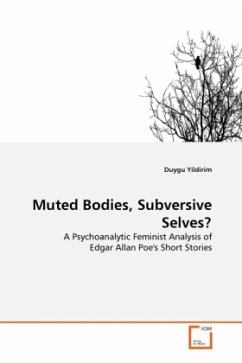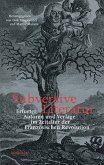This study aims to interrogate the interrelation between Edgar Allan Poe's subjectivity and the female figures in his fiction. Firstly, Lacanian dynamics of desire related to m(other) reflects the subjects's unconscious. Secondly, Poe's depiction of passive female figures entails implications about gender politics that pertains to Symbolic Order. The depiction of dead females by male narrators highlights the repression exerted over women through male oriented language. Thus, Poe's male narrators seems to be subservient to patriarchal order yet, their killing of the female castrator promulgates their desire to be alive by annihilating the other. Lastly, Poe's female narrator has a transient subversive tone in her narrations. This dissidence with Symbolic Order stems from subject-on-trail which corresponds to Kristevan Semiotic Chora. Thereby, the discrepancy between these narrations is closely associated with subject in process which is also buried in Poe's subjectivity.
Bitte wählen Sie Ihr Anliegen aus.
Rechnungen
Retourenschein anfordern
Bestellstatus
Storno








